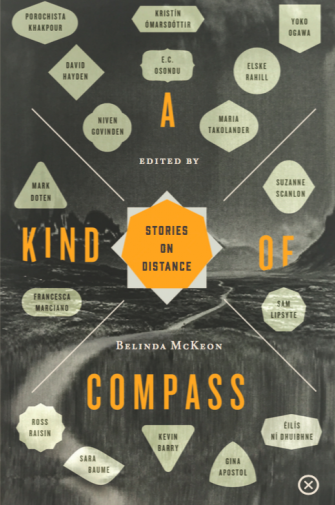A Cappella Zoo 10 – Spring 2013
-Reviewed by Rebecca Burns-
About thirty or so pages into this collection is a set of illustrations by Cheryl Gross, drawn to accompany Nicelle Davis’s three ‘In the Circus of You’ poems. Although I would never claim to be an artistic specialist, Gross’s drawings remind me of John Tenniel’s illustrations of Lewis Carroll’s Alice stories. This strikes me as particularly apt, for the Bestiary Special of A Cappella Zoo is a strange, eclectic wonderland of prose and poetry, drawing together the real with the imagined and fantastic.
Weighing in at a hefty 345 pages, A Cappella Zoo is comprised of seven sections, with titles like ‘Crematorium’, ‘Shelter’, ‘Aquarium’. Its editor, Gina Ochsner, sets out the journal’s remit in the introduction – to provide a space where magic realism can be presented as a ‘viable and legitimate form for narrative and image-rich poetry’. In this respect, A Cappella Zoo succeeds; gruesome, zombie-like stories jostle alongside shorter pieces about oddly fragmented families. Some are disturbing, others powerful. A disinterested father disappears into sand at a children’s playground, an elderly grandfather turns into a tree, the body of great-uncle who had been severely wounded during the Second World War falls apart time and time again.
Some pieces in the collection really shine; for example, ‘When The Weather Changes You’ by Amber Sparks. The empty sadness of the great-grandmother, the story’s protagonist, is captured perfectly in the metaphor of ash – decaying inside, the great grandmother is unable to love but urgently longs for the physical heat exerted by her only lover. Sparks portrays the grandmother’s conflicted desires with sensitivity, leaving the reader sympathetic rather than frustrated with her plight. Similarly, the ghoulish intrigue of ‘Three Conrad Poems’ by Kristine Ong Muslim is equally well done. The poems juxtapose the theme of familial love and Frankenstein-esque grotesquery of a zombie family: “I squeezed his hand to make him stop. It crackled./‘Don’t worry,’ I whispered over a mouthful/Of grass, earth, and dark river water. A family recipe./‘I’ll weld the bones later […].’ Such loving grotesquery is repeated later in Randolph Schmidt’s ‘Larva’, where a father imitates his son – in order to understand him – in the eating of insects and wood.
I was also moved by the sad, respectful tone of ‘War Crumbs’ by Joe Kapitan. The great-uncle in this story ‘falls apart’; literally, his body breaking apart at the joints. The disintegration of the self is repeated elsewhere in the collection, as in ‘The Adventures of Star Fish Girl’ by Lindsay Miller. This piece has a distinctly female take on the theme and provides an interesting take on the consumptive nature of relationships – that sense of something being taken by a lover.
Another standout story is ‘Trouble in Mind’ by Julia A. Rosenthal, which portrays the loss of language and its replacement with a number-driven intelligence. It is cleverly done, with Rosenthal skewing the common experience of partners becoming unable to talk to each other. In the parallel world of ‘Trouble in Mind’, this inability to talk occurs to characters following an illness. They become infected with a condition that takes away their vocal abilities and understanding of spoken language, replacing it with a new, number-driven intelligence. The ‘infected’ characters thus communicate with each other through Byrons – machines that translate and transfer the silent speaker’s words. It is an interesting premise and Rosenthal is skilful in her representation of the loneliness created by a decaying language. The only thing that didn’t settle with me in this story was the use of word Byron. To my mind, Byron conjures a sensual, brooding poet, who used language to challenge and provoke. Perhaps calling the translation machines Lovelaces would work – Ada Lovelace was Byron’s daughter, and a pioneer in maths and forerunner of computer algorithms.
I enjoyed and was challenged by this collection. Some poems and stories took me well out of my comfort zone and I applaud the ambition. The Bestiary edition of A Cappella Zoo is a journal to revisit and re-read.
Rebecca Burns is the author of Catching the Barramundi, longlisted for the Edge Hill Short Story Award.




Pingback: Bestiary Reviews & Writing | Maria Deira Says What